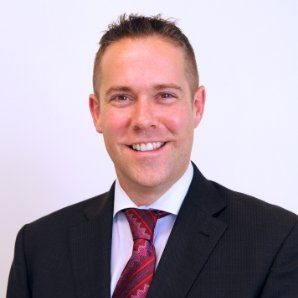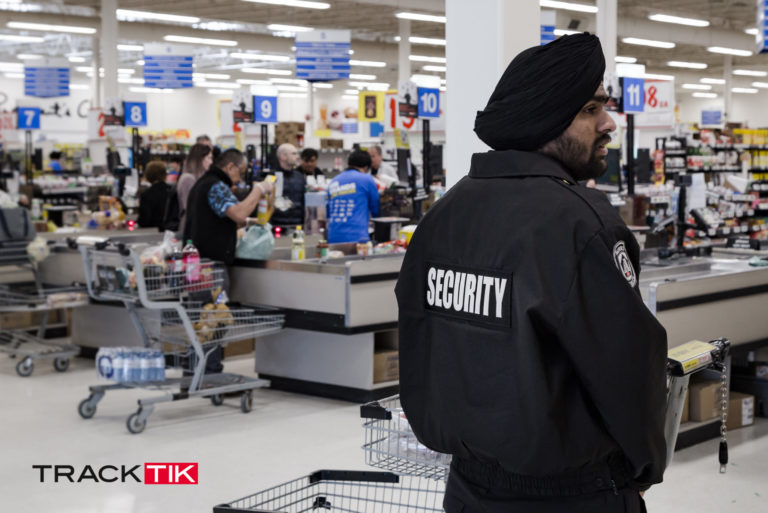Ken Close has been the Toronto Chapter Chair for ASIS International —the largest membership organization for security professionals in the world— since 2017. In this volunteer role, he keeps Toronto’s 650 members informed of developments and trends happening in the security industry on top of implementing programming initiatives to educate ASIS members on pertinent technological advancements, including hot topics such as cybersecurity.
When Ken isn’t supporting the Toronto segment of ASIS International, he works as the Manager of Security and Parking Services for three hospital sites in the Greater Toronto Area under Trillium Health Partners. Among his many accomplishments, Ken has set the bar for ensuring that cultural and gender diversity among hospital staff reflect community demographics in the GTA.
At the tail-end of 2018, I met up with Ken to discuss the unique demands and considerations that security professionals must have while operating in the complex hospital environment.
Hospital security: an industry of its own
 With close to 20 years of experience in healthcare security, Ken was quick to point out the unique challenges that hospitals present for security professionals. For the most part, hospital guards deal with people experiencing extremely stressful challenges in their lives, and as a result, they can lash out against hospital staff, other patients, or even themselves.
With close to 20 years of experience in healthcare security, Ken was quick to point out the unique challenges that hospitals present for security professionals. For the most part, hospital guards deal with people experiencing extremely stressful challenges in their lives, and as a result, they can lash out against hospital staff, other patients, or even themselves.
When violence occurs, there are limitations on restricting individuals that may pose a threat. No one can be denied medical treatment by being banned from a hospital, so security professionals need to find other ways to ensure the safe conduct of violent individuals while they receive medical services.
Opportunities for security professionals in the healthcare industry
Training in mental health and intervention strategies has become a greater expectation within law enforcement agencies across the country. Police officers often find themselves called to situations involving individuals who suffer from mental illness. Unfortunately, those officers may lack the formal training needed to effectively de-escalate those challenging circumstances.
Ken points to hospital security as the ideal training ground for future police officers. On a day-to-day basis, hospital security personnel de-escalate and work with patients suffering from mental health conditions. He argues that there’s no substitute for the hands-on, real-life training gleaned from working security in a major hospital’s psychiatric ward. With this insight, future police officers are able to foster competence and confidence that will prove invaluable in the next phase of their careers as local law enforcement agents.
The future of security in hospital settings
The major challenge that many healthcare institutions currently face is capacity; most hospitals are no longer big enough to adequately serve their surrounding communities. Patients are being designated to beds in hallways, and people aren’t getting treatments as efficiently as desired. The end result is growing frustration in patients. Ken points out that the hostile environment creates a stronger demand for hospital security, but that something needs to be done to alleviate pressure on healthcare practitioners.
Many hospitals are taking proactive measures to combat patient frustration by hiring “customer service” agents to act in two ways. Their primary role is to liaise between the healthcare practitioners and people in waiting rooms. They make sure that no patients are forgotten and that people are prioritized appropriately. As a secondary role, they collect feedback from people in order to develop solutions for the extensive wait times and frustration incurred as a result.
Collecting feedback has shed light on some patient needs that were not previously known to healthcare practitioners. For example, a doctor in Ottawa started a healthcare facility dedicated to providing service to the homeless after receiving feedback on their struggles when seeking out care in traditional hospital settings. Ken states that most of these people don’t have health cards and need more extensive care than simply being sent home with a prescription. Doctors also need to tailor their approach to ensure a productive treatment plan for someone facing homelessness on top of medical needs. In addition to being able to work with the homeless community in a more efficient and constructive way, having a healthcare facility dedicated to this sector of society alleviates some of the mounting pressure on larger hospitals. Perhaps niche medical facilities will be the answer to the growing capacity issues that major hospitals across the country presently struggle with.



